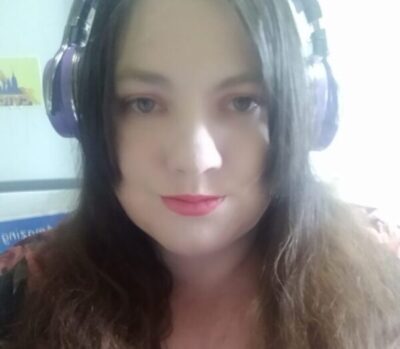
In honor of National Reunification Month, Lindsay Reilly, a parent impacted by the family policing system, discusses her experiences with peer support both during her ACS case and since she reunified with her two youngest children last year. She also shares her message to parents working to reunify their families. Lindsay will graduate from the Rise & Shine Parent Leadership Program in June.
Q: Why are peer support and community care important? How have you experienced peer support and community care?
A: It’s important to have a community of people who understand, support and lift you and your family up. With peer support, you have somebody to hear about your frustrations and triumphs. Support, and peer support especially, is fundamental to keeping families together. I don’t think my family’s reunification would have been possible for me without peer support.
I have had a lot of support from friends, even friends who never had a case themselves. Throughout my whole eight year journey with ACS, my best friend was a huge support to me and my family. She helped me to connect to services and came with me to the family team conferences and to court hearings. She was able to be a witness and say to my agency, “Mom made it to the visiting spot. The foster parent is not here.” She would document that for me. Her support was essential to me proving I was doing what I had to do, and also for keeping me motivated.
I’ve also been that support for impacted friends. A friend said to me yesterday, “It meant the world to me that you connected me to resources and believed me — because my caseworkers didn’t believe me. It makes me so happy to have a friend like you, that you were there.”
I have received a lot of support through Rise. In the foster agency, you can feel isolated, but when I joined a Rise writing group in 2015, I felt that I finally had people who understood what a challenge it is to have an ACS case. It helped to have a group of very strong women around me, healing in our writing experiences and lifting each other up, even when things were discouraging. Without the support from my best friend, Rise and other parents, I don’t think I could have stayed so strong.
Now, I’m in the Rise & Shine program. Even after I’ve reunified with my children, having that support has been amazing. I found a community where I don’t feel ostracized. I feel accepted, and it makes me really happy. Not only that, now, my kids also have support. The parents in the program are planning playdates. Peer support transcends beyond us to other other people, our children, our families—and can make all the difference.
Q: What have you learned from and about peer support?
A: I’ve learned that I can speak for myself. I felt a lot of stigma about sharing my experience during my case. I felt a lot of shame and guilt and questioned myself a lot. Through the course of my experiences, I learned that it is OK to have support — to ask for help and accept help. It doesn’t make you any less of a strong parent or person. I was refreshed to find out that I don’t need to go through difficult experiences alone.
I’ve learned that there are different kinds of peer support, and they are all important. There’s emotional support and there is physical support—maybe if you’re short on supplies, your friend reaches out and provides something you need.
Q: How can parents impacted by the family policing system connect with peer support?
A: Don’t let shame stop you from connecting with your community. You are not alone and you’re going through a very difficult situation. People are here for you and care for you. There may be friends or family members offering support.
You can search out people who are going through what you went through. When you’re going through this in an agency, if your children are playing with other children during visits, maybe you can get to know the parents. There are wonderful organizations that facilitate peer support and can help you feel less alone. For example, Rise has a support group by and for impacted parents. All methods of support are valid if they help you feel represented and heard and work for you.
Q: What is your message to parents trying to reunify?
A: Don’t give up or count yourself out. There was a time in my case where I thought that it was all over. Support from my friends and other parents, and my own kids believing in me, got me to go above and beyond.
I have been through the system for more than half of my life as a foster youth and parent. This system is designed to make you feel inadequate, but I’m here to tell you that you are more than adequate. You’re amazing. This may be the hardest struggle of your life. It is possible to overcome this and build your family again. Yes, it’s very hard rebuilding from this traumatic experience—and at the same time, it is possible. Don’t give up and don’t listen to negative messages from the system trying to demean you.
